Advertiser content
How genetics are adding value to dairy diversifications
Having the right genetics in the herd plays a vital role in achieving better results and profits for a diversified dairy business.
Hear from three dairy farmers whose innovative genetics choices have made diversification easier and more profitable.
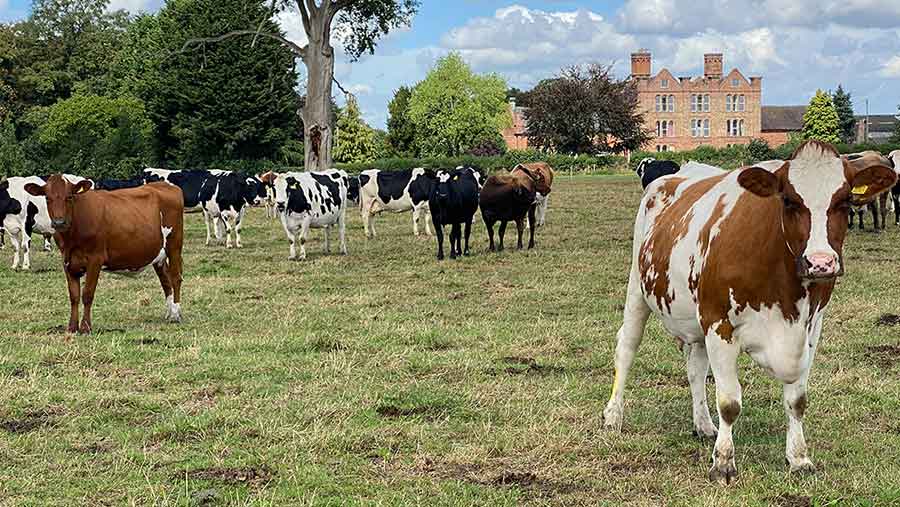
© VikingGenetics
According to the latest Department for Environment, Food & Rural Affairs (Defra) farm business survey, 68% of farm businesses in the UK have diversified their income up to 2022.
Selling milk directly to the public through branded produce such as cheese, ice cream, or liquid milk can help dairy farmers increase profits and business security.
Since the Covid-19 pandemic, more dairy farms have decided to sell milk directly to the public to overcome price volatility.
One dairy business that ventured into selling directly was that of William and Alison Chesnutt, who milk 255 ProCROSS cows in Northern Ireland.
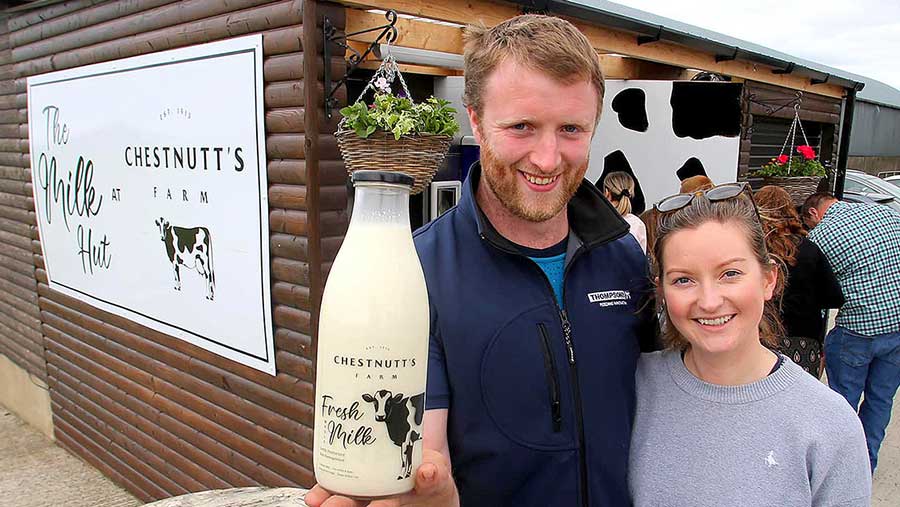
William and Alison Chesnutt © VikingGenetics
Their farm is situated on the Ballymoney to Portrush and was ideal for passing tourists, so they decided to set up a vending machine in 2019.
They sell 120 litres of unhomogenised, pasteurised milk daily through The Milking Hut.
“The other big driver for me, personally, is that I’m not a big fan of shop-bought milk. Milk tastes much better when it is fresher, unhomogenised, batch pasteurised, and not standardised, and this is what we sell,” he adds.
Their unique selling point is that milk is sold in glass bottles. “We always strive to increase our sustainability and liked the idea of selling milk in reusable glass bottles,” says William.
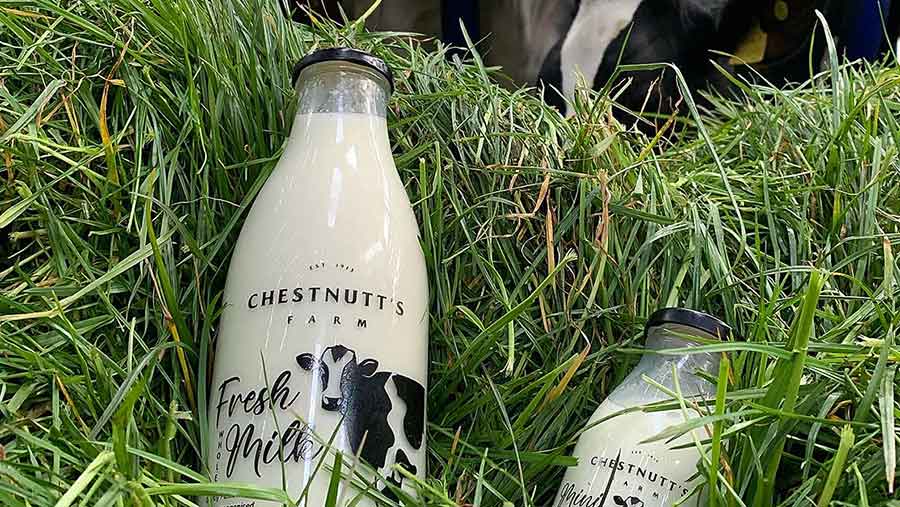
© VikingGenetics
This dovetails with their sustainable business ethos, which the ProCROSS is helping them to deliver.
The three-breed rotation of VikingHolstein, Montbéliarde and VikingRedis yielding 8,900 litres at 4.12% butterfat and 3.46% protein.
Since switching from Holstein to ProCROSS in 2018, cow longevity has improved alongside fertility and milk solids.
Improved constituents
Third-generation cheesemakers Paul and Sarah Appleby believe their herd of 350 ProCROSS cows is also providing them with better constituents to make their prize-winning Cheshire cheese.
Six years ago, the Applebys milked Holsteins at Hawkstone Abbey Farm, Shropshire, and say that the cheese had become their cash cow that was propping up their business.
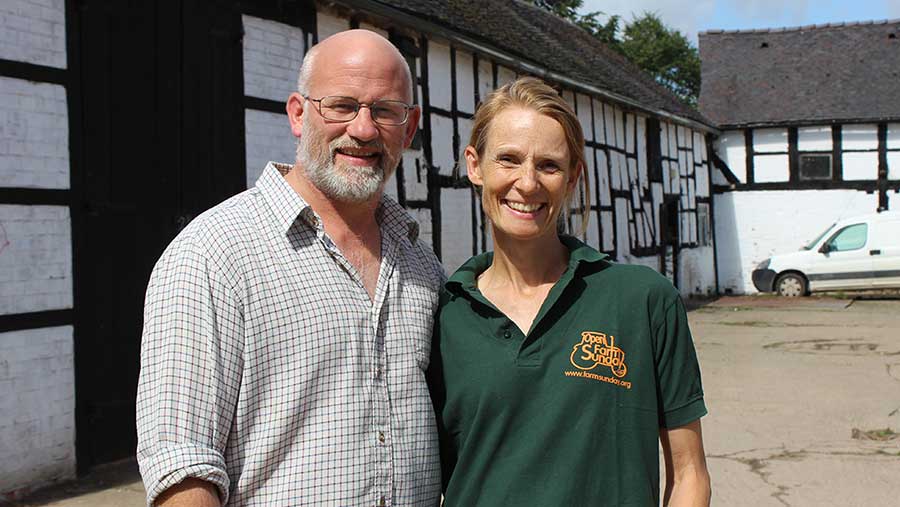
Paul and Sarah Appleby © VikingGenetics
A radical overhaul saw the couple move to an extended autumn block and switch to the three-way cross by introducing VikingRed across the herd and then using Montbéliarde on these heifers.
Production now stands at just under 8,000 litres at 4.3% fat and 3.5% protein. In comparison, the Holsteins produced 9,000 litres at 4.1% butterfat and 3.3% protein.
Although with a high proportion of heifers currently in the herd, yield is projected to rise.
However, Paul says yield is inconsequential – it is how much milk costs to produce that matters.
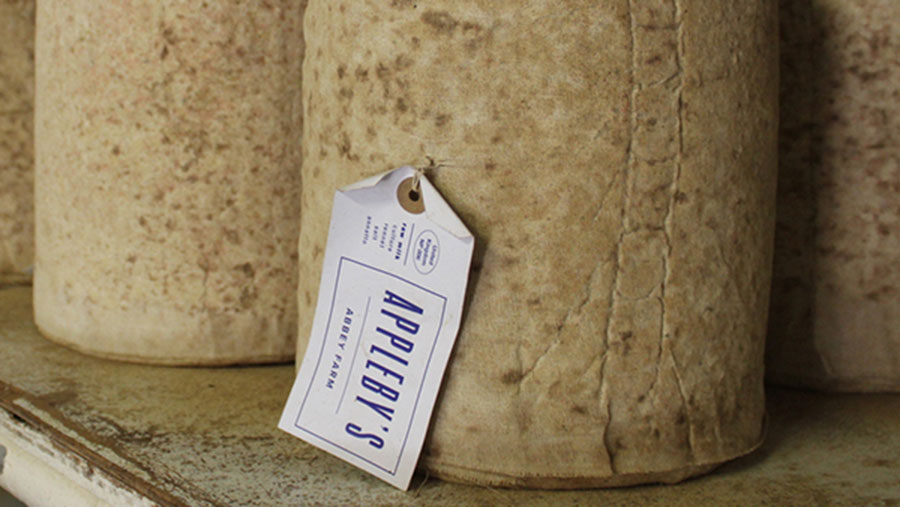
© VikingGenetics
The feed rate has fallen from 0.45kg/litre to 0.30kg/litre, and milk from forage has edged towards 4,000 litres from a low base.
The transition has also allowed the couple to reduce fertiliser and farm more regeneratively, which is a great story for their customers, too.
Cows graze herbal pastures and lucerne grown in rotation, and soil disturbance is minimal, with the couple choosing to overseed poorer pastures.
“The cows we are breeding suit the grazing and forage and are thriving on the cut-in concentrate inputs,” says Paul.
“Selecting the right genetics for your herd is of utmost importance, and we are always mindful of producing milk with good constituents for our cheesemaking,” he adds.
Tastier cheese
Introducing the VikingRed has also helped cheesemakers Steve and Karen Reynolds improve milk constituents and cheese quality.
The couple has produced Kingcott Dairy cheese near Staplehurst in Kent for over a decade.
They found Holsteins were not very well suited to cheese-making and wanted higher milk solids to improve the taste.
They made the switch in 2016 and were rewarded with an immediate improvement in milk constituents, and cheese yield lifted by 15% using the same volume of milk.
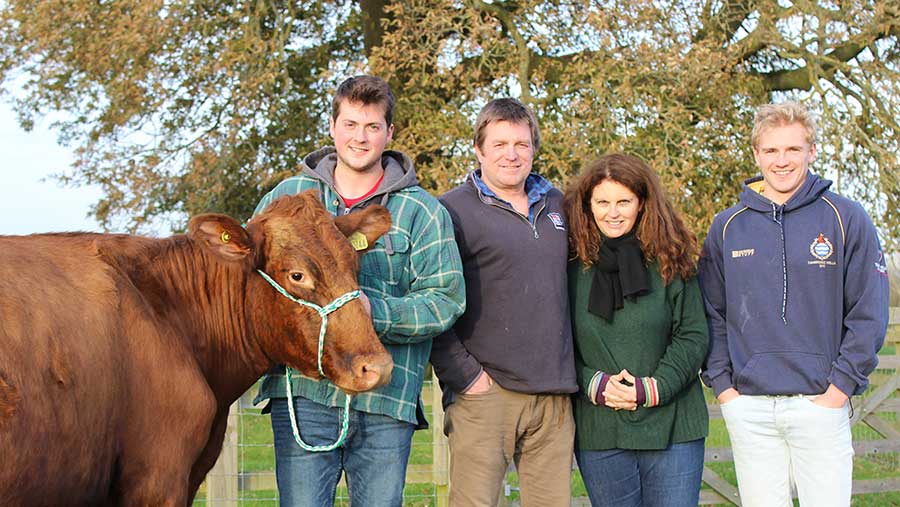
Steve and Karen Reynolds, pictured centre © VikingGenetics
The farm produces around 800,000 litres a year, of which 270,000 litres are used for cheese-making.
The balance is sold to Pensworth Dairy at a premium of roughly 3p/litre, reflecting the high milk quality, with the 100-head herd currently yielding 8,200 litres at 5.0% fat and 3.8% protein.
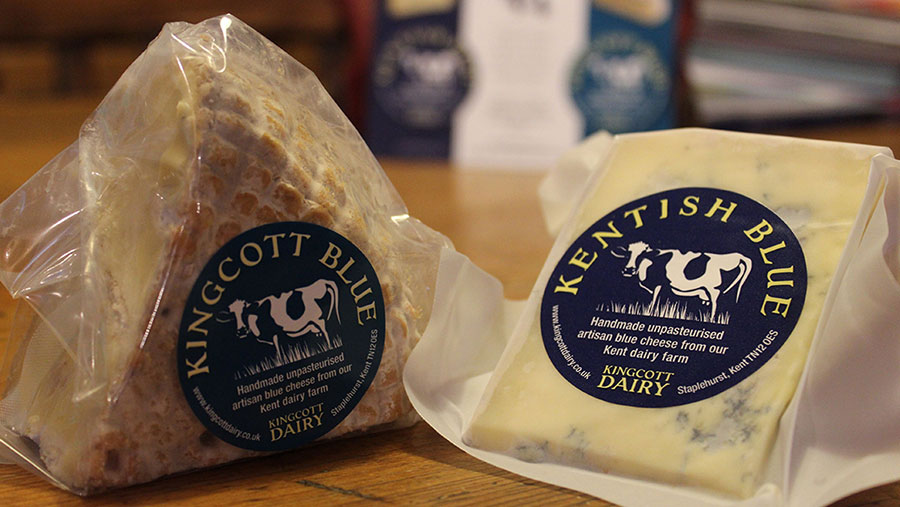
© VikingGenetics
The change in breed has allowed them to place more emphasis on grass, and because of this, milk from forage has jumped from 2,400 litres to 4,000 litres.
“The cows are tougher and look after themselves; they are better grazers in any weather, and undoubtedly our profits have gone up,” says Steve.
Chris Stone from VikingGenetics says the right genetics is an important consideration to ensure you meet the requirements of your milk contract, and it is equally important when selling directly.
“VikingGenetics offer versatile breeds that suit both low-input and high-input systems, and they deliver high-quality milk whether you are selling milk direct to the public or to a processor. This will help you to maximise income,” he says.
“Genetics is often the forgotten part of the jigsaw when it comes to making a diversification work successfully, but with product taste and quality being so important, it shouldn’t be,” ends Chris.
Curious about ProCROSS? Get more insights.
Provided by
VikingGenetics contributes to feeding the world's population and preserving natural resources through innovative breeding of healthy, efficient cows. VikingGenetics delivers science-based bovine genetic solutions to dairy and beef producers.
